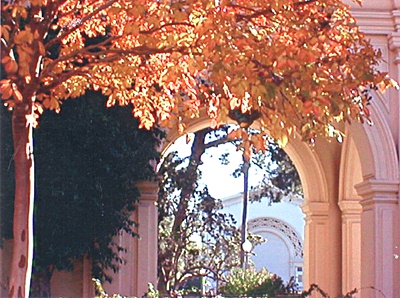All Nonfiction
- Bullying
- Books
- Academic
- Author Interviews
- Celebrity interviews
- College Articles
- College Essays
- Educator of the Year
- Heroes
- Interviews
- Memoir
- Personal Experience
- Sports
- Travel & Culture
All Opinions
- Bullying
- Current Events / Politics
- Discrimination
- Drugs / Alcohol / Smoking
- Entertainment / Celebrities
- Environment
- Love / Relationships
- Movies / Music / TV
- Pop Culture / Trends
- School / College
- Social Issues / Civics
- Spirituality / Religion
- Sports / Hobbies
All Hot Topics
- Bullying
- Community Service
- Environment
- Health
- Letters to the Editor
- Pride & Prejudice
- What Matters
- Back
Summer Guide
- Program Links
- Program Reviews
- Back
College Guide
- College Links
- College Reviews
- College Essays
- College Articles
- Back
Staring Through the Archway in Raphael's School of Athens
I stare through the Roman archway of Raphael’s School of Athens at the Greek forum, which bustles with life as the spirited fathers of Western philosophy gather. Plato and Aristotle, who made pioneering contributions to ethics and logic, speak with each other in the center of the painting. Socrates, the mentor of both men, argues his case to another philosopher. Epicurus, who taught that pleasure should be the highest aspiration of human life, carefully examines a text. Pythagoras, who greatly influenced mathematics and natural philosophy, pores over a book. Euclid, who fathered geometry, sketches on a tablet. Ptolemy, a revolutionary astronomer and geographer, presents his findings to some of his peers. Heraclitus, famous for his insistence on constant change in the universe, sits pondering. Flying baby angels, called putti, bear phrases such as “Seek Knowledge of Causes” and “Knowledge of Things Divine.”
These philosophers represent the history of Western human thought, for their unprecedented ideas shaped the Western world as we know it. They fed the cultural explosion of art, literature and philosophy that characterized the Renaissance. These classical ideas also provided the basis of human intellect and existentialism for the Scientific Revolution, in which discoveries in mathematics, sciences and medicine changed people’s views of both human society and the natural world. This level of innovation ultimately led to the Enlightenment, a philosophical crusade that promoted education, reason and defiance of tradition. The artistic, scientific and mathematic advances made during the Renaissance, Scientific Revolution and Enlightenment have ushered in the technological age that has changed the modern way of life. The great minds of the classical age provided the creative and intellectual basis for the trajectory of the past two thousand years of artistic, scientific and mathematic thought that will continue to evolve in new and groundbreaking ways.

Similar Articles
JOIN THE DISCUSSION
This article has 0 comments.
